C. S. Lewis’ Warning for the Modern World
What Happens When a Civilization Abandons Meaning
When people talk about C. S. Lewis, they usually think about The Chronicles of Narnia or Mere Christianity. But the most important thing he ever wrote is a thin, quiet little book called The Abolition of Man. It’s not flashy, it’s not emotional, and on the surface it barely seems religious. Yet it’s one of the sharpest warnings about the modern world ever written.
Lewis was writing about what happens when a culture loses its sense of objective value… when people stop believing that things can actually be good or bad, true or false, beautiful or ugly, apart from personal preference. Once you remove that foundation, Lewis argued, everything else eventually collapses: morality, education, meaning, and even humanity itself.
The book is only three lectures long, but every page hits the same point from a different angle. Lewis was trying to show that the danger wasn’t that modern people would become too rational, or too scientific, or too liberated. The danger was that they would lose the ability to recognize the reality of value… the “Tao,” as he calls it… and once you lose that, you don’t get to keep the rest of civilization.
Don’t forget to join our FREE book club!
We started a digital book club to study the great texts of Western Civilization — from Dante to Dostoevsky — together. Inside, you’ll get:
Live community book discussions (bi-weekly)
New, deep-dive literature essays every week
The entire archive of book reviews + our 100 great texts reading list
Our first discussion on The Abolition of Man by C. S. Lewis is on November 25th at 12pm ET. Bring your thoughts, questions, and favorite passages!
Sign up below to attend — all paid members can join the live discussion up on stage…
Note: paid subscribers via Substack will automatically receive an access link for the live calls.
Why Lewis Started With a Textbook
Lewis opens the book with an example so small you almost miss the point. He had come across a school textbook that tried to teach children “critical thinking” by telling them that when a man called a waterfall “sublime.” The authors thought they were being modern and sensible. For Lewis, they were training children to disbelieve in meaning.
If beauty is just emotion, then so is courage. So is justice. So is love.
And if these things are nothing more than feelings, and feelings can be manipulated, then whoever controls the emotions controls the person.
Lewis’ argument is simple: if children grow up believing that value isn’t real, then we shouldn’t be surprised when adults become incapable of moral judgment. They won’t be bad people; they’ll be empty people… “men without chests,” as he puts it. Creatures with intellect and appetite, but no steady place in between to anchor their humanity.
The chest, for Lewis, is the seat of trained emotion. Not raw instinct, and not abstract theory… but the disciplined middle layer that learns to love the right things. A person without this “chest” might be intelligent, but will be unreliable, unstable, and easily controlled, because nothing inside them pushes back against power.
This idea… that our emotions must be trained, not discarded… is the spine of the entire book.
The Tao: A Name for Something Everyone Once Knew
Lewis uses the word “Tao” deliberately. He wanted a term that didn’t sound Christian or Western. He wanted to show that across history, across civilizations, across religions, humans have always recognized that certain things were objectively right: honoring parents, protecting the weak, telling the truth, showing courage, seeking justice, and valuing beauty.
You can find these ideas in Aristotle, in Confucius, in Aquinas, in ancient Egyptian wisdom literature, and in Native American traditions. You can find them in the Gospels, in the Stoics, in the Greek texts. Different cultures express them differently, but the underlying structure is the same. This shared moral core… what Lewis calls the Tao… is the operating system of human civilization.
The modern world thinks it can keep all the outcomes (rights, fairness, compassion, dignity) while ripping up the foundation that produced them. Lewis’ point is brutally simple: you can’t.
Once you teach people that morality is subjective, you shouldn’t be shocked when they stop acting morally. Once you teach them values are just emotional preferences, you shouldn’t expect them to sacrifice for anything. A culture that cuts off its own roots will eventually find that it has no fruit.
The Conditioners: People Who “Remake” Humanity
The most chilling part of the book comes when Lewis describes the people he calls the “Conditioners.” These are the individuals and institutions… educators, technocrats, scientists… who no longer believe in objective value but still want to shape society according to their preferences.
If values are subjective, then education stops being about forming character and starts being about programming behavior. The people in charge won’t feel bound by any moral law, because they don’t believe in one. They will feel free to “engineer” better humans… through schooling, propaganda, biology, or technology… because nothing higher than their own desires restrains them.
And here Lewis makes his boldest claim: the moment one group gains the power to reshape human nature itself, “Man’s final conquest has proven to be the abolition of Man.”
Because what you end up with is not a perfected humanity. It’s a diminished one.
You will have masters and subjects. Conditioners and conditioned. Designers and designed. Free men and manufactured men.
The last generation of “men” will be the people who hold the power. Every generation after will be something less… products, not persons.
It’s not hard to see why Lewis sounds prophetic now. Gene editing, AI-driven behavior shaping, technocratic control of culture, emotional manipulation through media… the tools he warned about exist now in forms far more powerful than he could have imagined. But the logic is the same. Once you treat human nature as raw material, you stop treating humans as sacred.
Why Lewis Still Matters
The brilliance of The Abolition of Man is that Lewis is precise. He’s diagnosing a sickness that everyone sees but no one names. His main point is that the modern world assumes it can keep morality after throwing away the beliefs that made morality possible.
We want justice without a standard of justice.
We want rights without a source of rights.
We want human dignity without a view of the human person.
We want meaning while insisting meaning is subjective.
Lewis says this won’t work. Civilizations don’t survive on borrowed assumptions forever. Eventually the account runs dry.
And when it does, you get a controlled society.
A world of fragile individuals.
A world of people whose thoughts are shaped by whoever wields the tools of conditioning.
Lewis ends on a sober note: either we remain inside the Tao or we lose the ability to recognize humanity altogether. The future is between humans who still believe in objective value and humans who don’t.
What the Book Leaves You With
When you finish The Abolition of Man, you walk away realizing he barely scratched the surface. He saw where the world was heading long before it arrived there. He saw that the real danger was the loss of a shared moral vocabulary.
What happens when a culture teaches its children to treat meaning as a fiction?
What does that culture become?
It becomes a world full of clever people who no longer know what it means to be human and who therefore can be made into anything.
I’ll leave you with this… if you want to protect the future, you start by recovering something deeper: the ability to say that truth is real, that virtue is real, and that humanity is not a material to be engineered, but a mystery to be honored.
Lewis knew that the future belongs to whichever side remembers that.



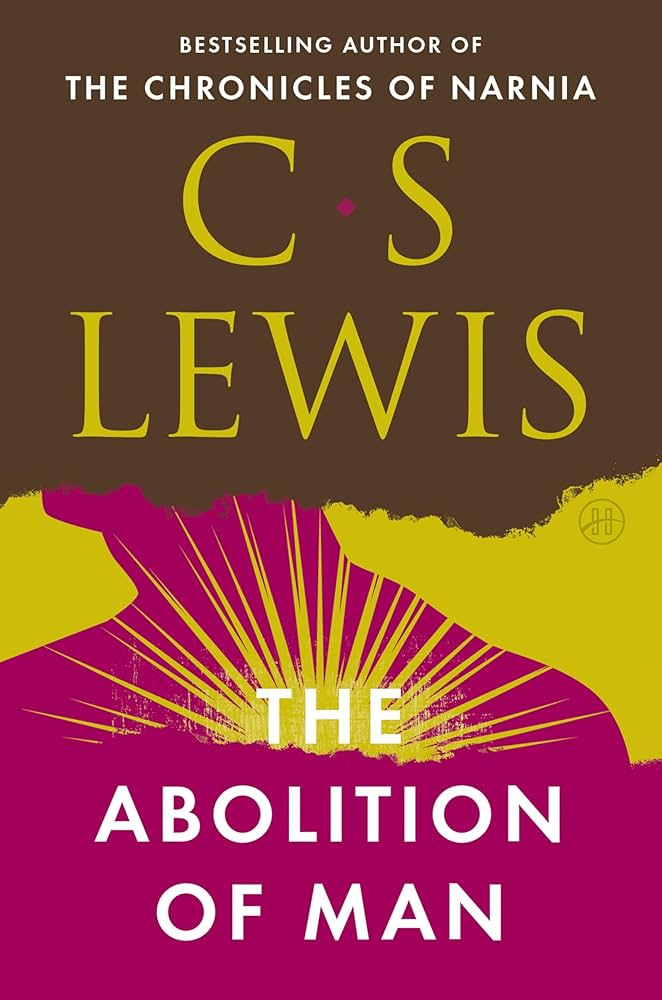
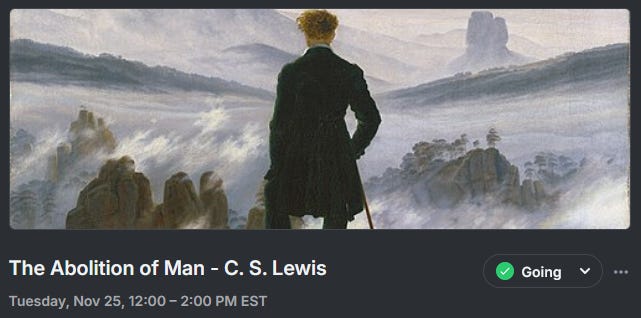

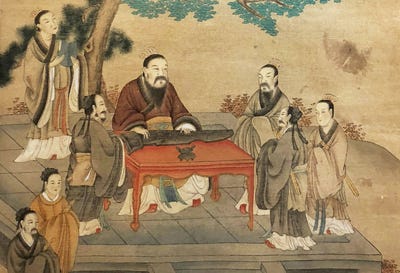
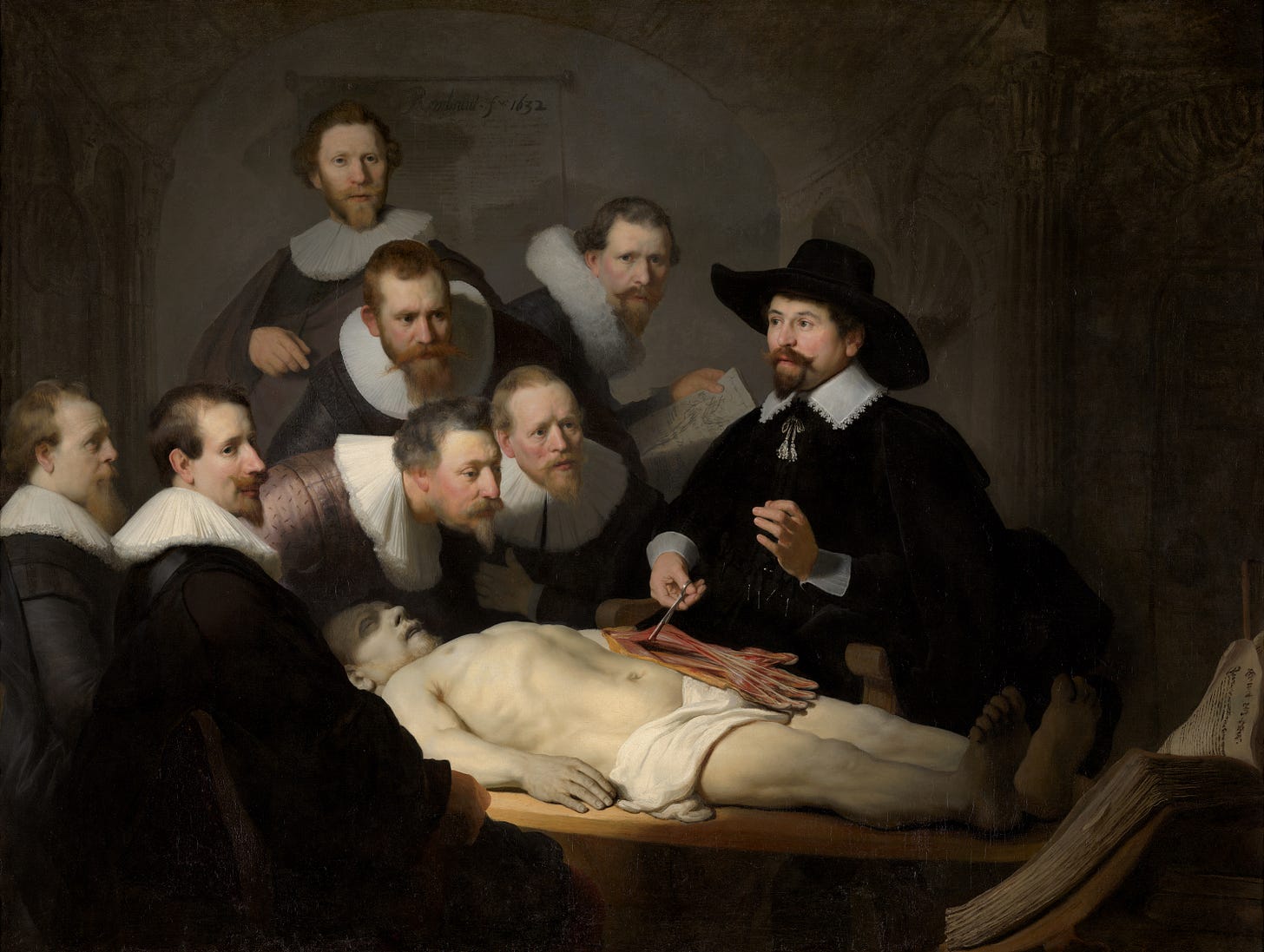
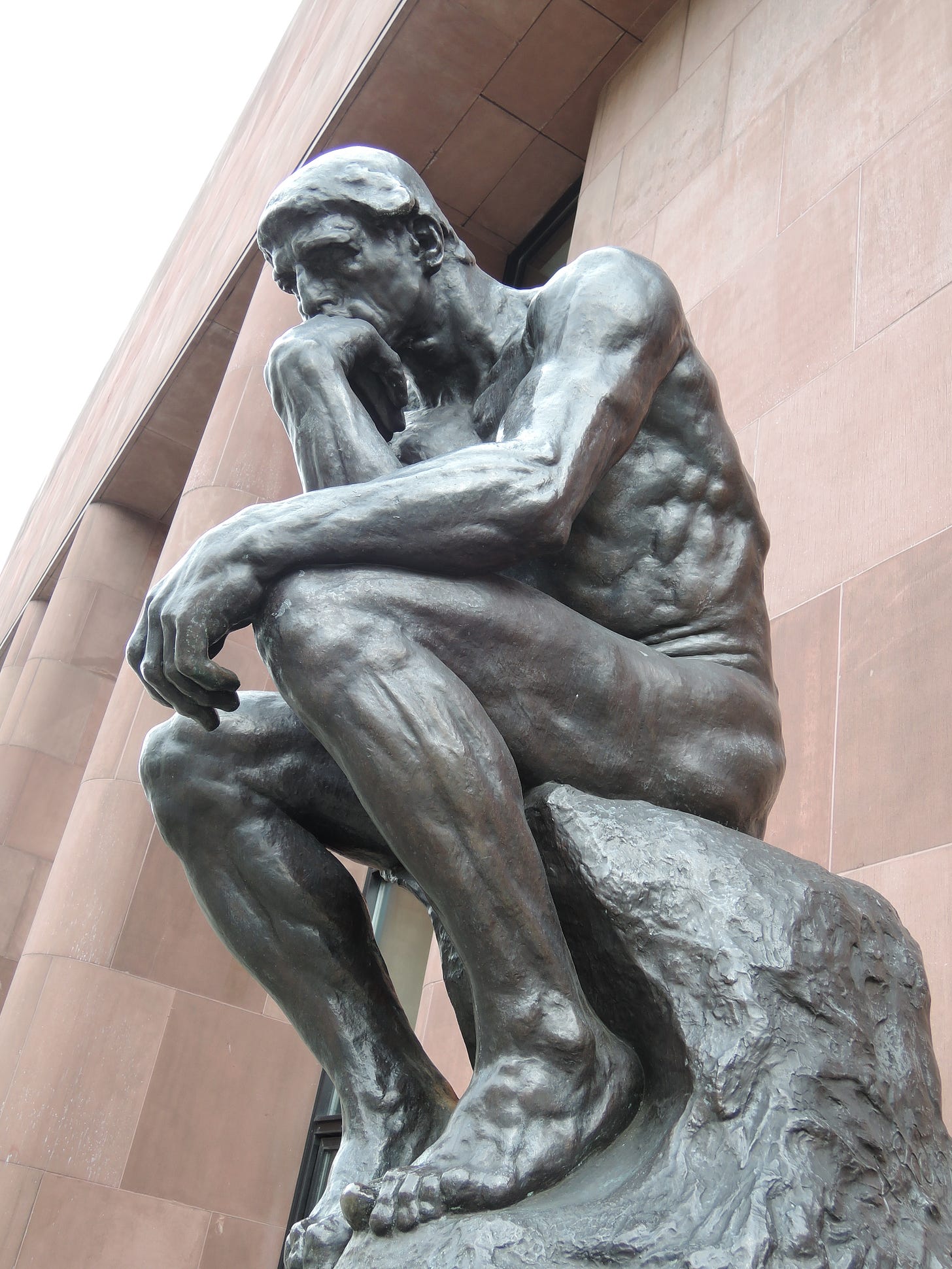
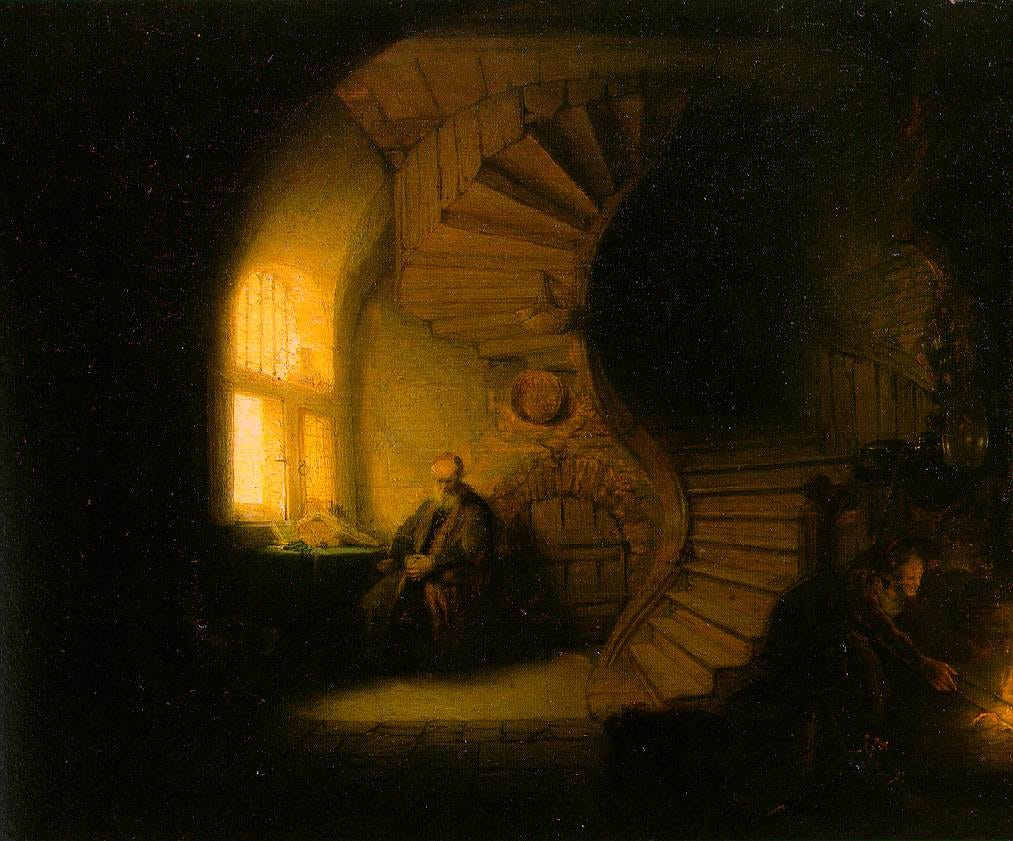
I just got finished with ‘Abolition of Man’, currently in the middle of ‘Mere Christianity’, and what a fantastic writer/ speaker. It makes me want to go back and read his fiction work just to spot his wit.
This hit me harder than I expected. It mirrors a lot of what I grew up with. The pressure to optimise yourself into pure objectivity. The instinct to push aside anything emotional or human. The article made me realise how far that can go and what gets lost in the process.
If we strip out our ability to feel and love, we end up with knowledge cut off from the inner life that gives it meaning. And when that happens, what kind of person do we become?
After reading this, I am actually picking up the book. Good recommendation.